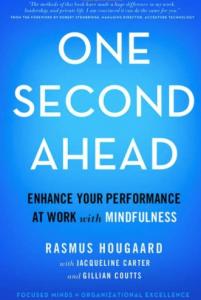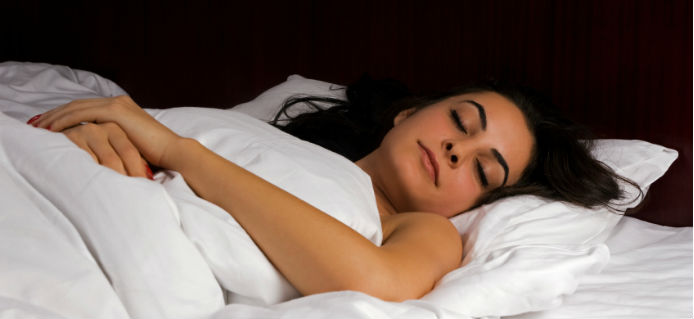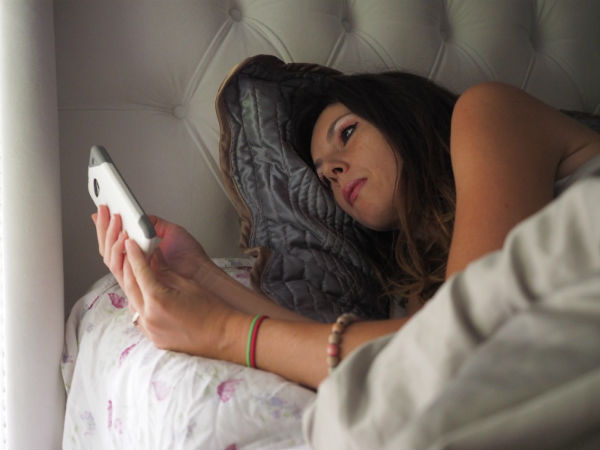Do you have trouble clearing your mind before bed and sleeping well – you’re probably finding it extra difficult in the run up to Christmas! The authors of new book, One Second Ahead: Enhance Your Performance at Work with Mindfulness, explain simple ways to destress before bed
Often, nowadays, good sleep is an increasingly elusive frontier for many people. Think back to a time when you had two or three consecutive nights of really good sleep? Hopefully, it wasn’t too long ago. Now, think about the last time you had too little sleep? For most people, that was last night or the night before. Modern life sees our collective sleep deprivation rise inexorably.
We all know too little sleep can seriously impact our performance and well-being. Yet despite the undeniable importance of sleep for our overall health and well-being, it’s often the first thing many of us compromise. As a result of our busy lifestyles, sleep is regularly pushed toward the bottom of our list of priorities.

From the new book One Second Ahead there are three simple guidelines that can help you get better sleep plus advice on sleeping mindfully.
#1: Catch the melatonin wave
A complex mixture of neurochemicals in your brain and body—the most important of which is melatonin—determines the quality of your sleep. Melatonin, when released from the pineal gland deep inside your brain, makes you relaxed, drowsy, and ultimately fall asleep. It’s a great, organic, and natural drug. If you learn to notice it and go with its flow, you’ll enjoy falling asleep and have better quality sleep during the night.
The release of melatonin has its own rhythm over a 24-hour period: from very low in the daytime, rising through the evening, and peaking around 2 a.m.
The key to catching the melatonin wave is to be mindful: have awareness of the natural drowsiness and relaxation that occur toward the end of the evening and maintain that awareness as you prepare for bed. If you try to keep yourself awake—which is very possible, and many of us often do—you’ll miss the ideal opportunity to catch the melatonin wave.
Besides getting in sync with your own cycle of melatonin, another simple way to get a better night’s sleep is to reduce or eliminate screen time before going to bed.
How to catch the Melatonin Wave
- Before you lie down, sit on the edge of your bed, close your eyes, and allow any thoughts of unresolved business to arise, and then let them go. Centre yourself with your breath. Allow your body to relax. Allow your mind to relax. Breathe and let go.
- Lie down on your back. Maintain a gentle awareness of your breath while relaxing your body and mind deeper with each exhale. Do not force your attention on your breath as that will arouse wakefulness.
- Simply relax and let go.
- After a short while, you’ll experience your awareness fading away. When this happens, roll onto your right side; let go of any remaining awareness; and allow yourself to fade into sleep.
(if you have a tendency to wake up in the middle of the night, repeat the two last steps)
Mindfulness has a positive impact on our physiology, mental processes, and work performance. At the physiological level, researchers have demonstrated that mindfulness training can result in a stronger immune system, lower blood pressure, and a lower heart rate. People sleep better and feel less stressed.
#2: Avoid blue light (that is, screens) 60 Minutes before sleep
Your smartphone, your tablet, your laptop, your television, and any other screen you may have all stand in the way of you catching the melatonin wave. How? Each of those screens emits high levels of blue light rays. That blue light suppresses your pineal gland, and, in turn, the production of melatonin. Where the sun was once the only light setting your biological clock ticking, artificial light threatens to throw that natural rhythm out of whack.
To put it simply, screen light kills your sleep. To avoid the circadian confusion blue light exposure can cause, turn off all screens one hour before you go to sleep. All of them. It might sound difficult to some, but it works. The impact it has on sleep quality—and therefore mental and physical performance—speaks for itself. Of course, quitting any habit cold turkey can be difficult. To help facilitate the change, try replacing your hour of pre-bed screen time with 60 minutes of perceptual activities.
#3: Do ‘perceptual activities’ 60 minutes before sleep
Save the dishes, walking the dog, listening to music or taking out the trash for the last hour of the evening. These kind of perceptual activities aid better sleep especially since too much thinking is yet another enemy of late evening natural relaxation and drowsiness. Conceptual activities like intense conversations, replying to e-mails, working, or reading can arouse your attention and suppress your natural sleepiness. However, perceptual activities help you catch the wave of melatonin as it rises.
Falling Asleep Mindfully
What does your bedroom look like? Is it clean or cluttered? A calm space or a chaotic one? The more you can do to turn your bedroom into a sleep sanctuary, the better off you’ll be. Allow your bedroom to be a nonconceptual place. Leave your screens, serious conversations, and thinking at the door.
Beyond making your bedroom into a shrine to sleep, these steps will help you calm your mind and best catch the melatonin wave.
One Second Ahead: Enhance Your Performance at Work with Mindfulness was published by Palsgrave Macmillan on November 6th, 2015
About the authors



Like this article? Sign up to our newsletter to get more articles like this delivered straight to your inbox.


























































